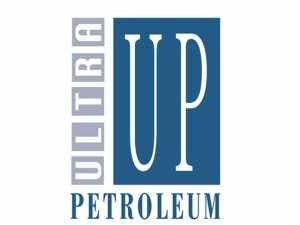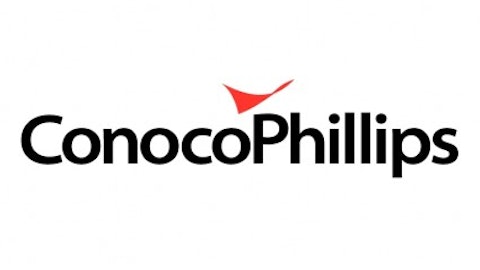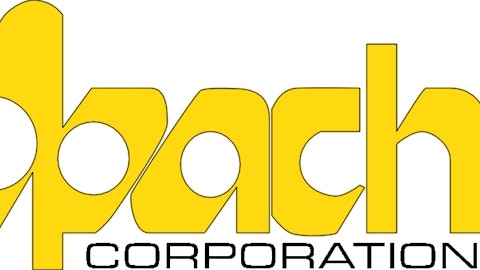
Over the past year, the price has recovered slightly, but the current value of $3.64 per MMBTU is still in the bargain basement. These low prices have created a unique buying opportunity for natural-gas exploration and production companies. This article will review three of these firms that represent exceptional values for long-term investors.
Relationship between crude oil and natural gas
One barrel of crude oil has the equivalent energy of about 6 million BTUs of natural gas. Based on this, a barrel of oil should cost about 6 times the price a MMBTU of natural gas. However, the two energy sources have different production, transportation, and storage costs, so economists believe a better rule of thumb is that the ratio should be 10-to-one. At current prices, oil is selling at about $106 a barrel and natural gas is selling at $3.64 per MMBTU, a ratio of over 29-to-one! So from an energy-content point of view, natural gas is dirt cheap!
Why is natural gas so cheap?
Shale gas refers to natural gas that is trapped in sedimentary rock formations called shale. In the late 1990s, two technologies were developed that allowed the economic recovery of this trapped gas:
a technique of fracturing the rocks using high pressure liquids (a process called fracking)
the ability to drill horizontal rather than vertical wells
With these techniques, previously unproductive formations became fantastic producers of natural gas. These wells generate more natural gas each day than the nation consumes. The United States has now become one of the largest producers of natural gas, and by some accounts has sufficient reserves to last a century. As supply outstripped demand, the price of natural gas dived.
Prices slated to recover
Because natural gas is cheaper and cleaner than crude oil or coal, many industries that depend on energy are converting to natural gas. For example, truck manufacturers are moving to natural-gas engines and electric utilities are switching from coal. The move by utility companies will likely be accelerated because the EPA has imposed restrictions on coal emissions to be implemented by 2016.
As more firms see the benefit of natural gas, demand will continue to grow over the next few years. So the long term bodes well for natural-gas prices and I have identified three companies that are highly leveraged to the price. These firms are described below and all of them should benefit greatly from higher natural-gas prices.
Almost a pure play
Ultra Petroleum Corp. (NYSE:UPL) is almost a pure natural-gas play with 97% of production being in natural gas. It is also the lowest-price producer, with exploration and production costs of about $1.50 per MMBTU and an all-in break-even cost of only $3.00 per MMBTU. Ultra Petroleum has exceptional properties in the Pinedale and Marcellus formations, with sufficient reserves for at least 20 years of inventory. The Rockies Express pipeline was completed in 2009 and connects Ultra Petroleum’s Western fields to the lucrative East Coast markets.
If natural-gas prices increase only modestly, Ultra Petroleum Corp. (NYSE:UPL) is poised for growth. For example, if natural-gas prices rise to $4.50 per MMBTU over the next three years, production is expected to grow by 42% and EBITDA is expected to double! Selling at a forward PE of only 10.7, Ultra Petroleum definitely offers growth at a bargain price.
Low-cost producer
Chesapeake Energy Corporation (NYSE:CHK) is another low-cost producer that is an excellent value play. Chesapeake Energy has had its share of problems, including scandals associated with the ex-CEO Aubrey McClendon and difficulties obtaining funding. However, Chesapeake Energy appears to have turned the corner by naming a new CEO and selling about $3.6 billion of non-core assets. The company is the second-largest producer of national gas with excellent shale properties in the Barnett, Haynesville, and Marcellus regions.
Net income is expected to grow by 282% in 2013 and EBITDA is expected to grow by more than 30% year-over-year. With a forward PE of only 10.3 and a price-to-book of only about 1.1, Chesapeake Energy Corporation (NYSE:CHK) is positioned to take full advantage of any increase in natural-gas prices.
Outstanding shale access
Rosetta Resources Inc. (NASDAQ:ROSE) is a mid-sized company with some outstanding shale properties in Texas, especially the Eagle Ford region. It has the third-lowest price of natural-gas production (behind Ultra Petroleum Corp. (NYSE:UPL) and Chesapeake Energy Corporation (NYSE:CHK)). Projections are for double-digit growth in year-over-year production and reserves. Cash flow is also expected to increase by over 30% from 2012. Overall, Rosetta Resources has a rock solid balance sheet and with a forward PE of less than 10, it is one of the best value plays.
A Foolish question
If gas is so abundant in the U.S., why don’t we export the excess? The answer: Government regulations. Currently, natural gas can be exported only to countries that have free-trade agreements with the U.S., unless special permission is obtained from the Department of Energy. However, laws are pending in Congress to expand exports to our NATO allies. Over the next few years, I predict that the U.S. will become a large exporter of natural gas, driving down supply in the U.S. and causing prices to rise.
Foolish bottom line
Natural gas is at the beginning of a long-term bull market as more industries switch to this abundant source of energy. The energy market is volatile but, if you can tolerate the ups and downs, investments in low-cost natural-gas producers will almost surely reward the patient investor.
The article 3 Natural Gas Stocks to Buy Now! originally appeared on Fool.com and is written by John Dowdee.
John Dowdee owns shares of Chesapeake Energy, Ultra Petroleum, and Rosetta Resources. The Motley Fool recommends Ultra Petroleum. The Motley Fool owns shares of Ultra Petroleum and has the following options: Long Jan 2014 $20 Calls on Chesapeake Energy, Long Jan 2014 $30 Calls on Chesapeake Energy, Short Jan 2014 $15 Puts on Chesapeake Energy, Long Jan 2014 $30 Calls on Ultra Petroleum, Long Jan 2014 $40 Calls on Ultra Petroleum, and Long Jan 2014 $50 Calls on Ultra Petroleum. John is a member of The Motley Fool Blog Network — entries represent the personal opinion of the blogger and are not formally edited.
Copyright © 1995 – 2013 The Motley Fool, LLC. All rights reserved. The Motley Fool has a disclosure policy.




